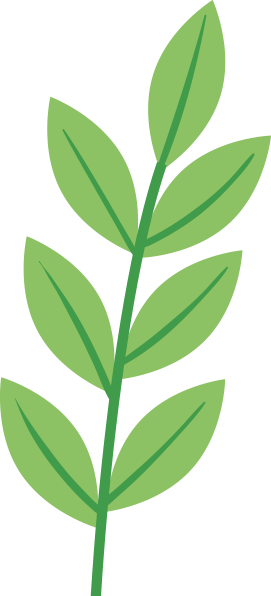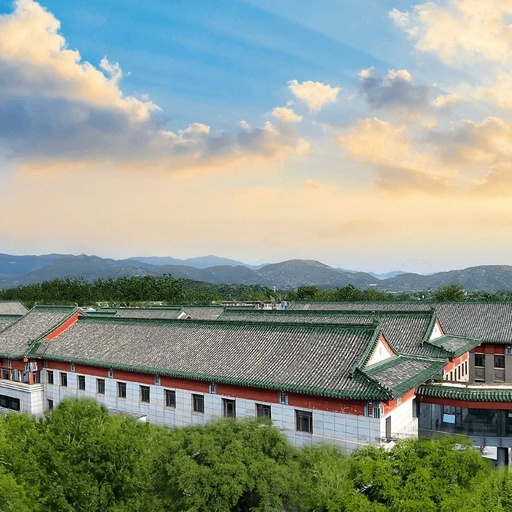
Click “Xiyuan Hospital” to follow us
Wang Bing, Deputy Chief Physician of the Pulmonary Department, Xiyuan Hospital, China Academy of Chinese Medical Sciences
The classic TCM text, Huangdi Neijing: Suwen: Lun on Cough, clearly states that “the lung is the source of cough,” indicating that the direct location of cough is in the lungs. The lungs govern qi and respiration, the liver regulates the flow of qi, the heart governs blood vessels, the spleen is responsible for transformation and transportation, and the kidneys govern the reception of qi. Although each organ has its own function, they are interconnected through the meridians, forming a network of qi circulation. Once the function of any organ becomes abnormal, this balance is disrupted. While cough is often associated with lung issues, dysfunction in other organs can also lead to lung abnormalities and result in coughing.
Conversely, chronic coughing can also affect other organs. In TCM theory, the occurrence and development of cough follow specific transformation patterns. For instance, the initial stage of cough is often due to external pathogens invading the lungs, characterized by a clear and forceful cough with thin, easily expectorated phlegm. If not treated promptly or treated improperly, the pathogenic factors can travel along the meridians, leading to a complex situation of multiple organ involvement. If cough persists for a long time, it can easily lead to the transfer of disease from one organ to another, as stated in the Huangdi Neijing: “Prolonged cough of the five zang organs will transfer to the six fu organs.” Modern medicine has also found that chronic cough can lead to complications in multiple systems, including cardiovascular and digestive systems. Therefore, individuals with persistent cough should not rely on self-healing and should seek medical attention promptly.
Many issues in modern lifestyles are quietly becoming contributors to chronic cough. For example, excessively low temperatures in air-conditioned environments during summer and the indiscriminate consumption of cold foods can lead to the consequence of “cold injuring the lungs.” Frequently eating late-night snacks or takeout, which are rich and greasy, can cause disharmony in the spleen and stomach, leading to increased coughing after meals, accompanied by acid reflux and heartburn. Excessive stress and anxiety can lead to liver qi stagnation and fire transformation, often manifesting as cough with facial flushing and rib pain, with cough intensity fluctuating with emotions. Staying up late can deplete kidney essence, causing deficiency fire to ascend and scorch the lung meridians, resulting in dry throat, pain, and dry cough without phlegm.
In TCM, treating cough is not merely about suppressing the cough but rather about regulating the qi of the organs. For external coughs, which are akin to an invasion by external enemies, treatment should focus on “opening the door to drive out the intruders,” promoting lung function and stopping the cough with light and penetrating medications. For internal coughs, the focus is on harmonizing the organs, with treatment emphasizing the balance of yin and yang. Treatments for cough caused by organ dysfunction vary accordingly.
Liver cough is often caused by prolonged stress leading to liver qi stagnation and fire transformation, resulting in “wood fire attacking metal,” characterized by paroxysmal cough at night (1-3 AM), accompanied by rib pain and red eyes with a bitter taste in the mouth. Treatment often includes internal consumption of liver-regulating herbs such as rose and fo-shou, combined with massage of the Tai Chong (LR3) point to guide qi downward.
Spleen cough is common among those with irregular eating habits, where spleen deficiency leads to dampness and phlegm production, characterized by excessive white phlegm in the morning and worsened cough after meals, with a white and greasy tongue coating. Treatment emphasizes “nurturing earth to generate metal,” recommending morning consumption of porridge made with Fu Ling (Poria) and Shan Yao (Chinese Yam) to strengthen spleen yang, and afternoon consumption of Chen Pi (Dried Tangerine Peel) and Pu-erh tea to transform dampness, supplemented with moxibustion on the Zu San Li (ST36) point to enhance digestive function.
Kidney cough is often seen in the elderly or those with weak constitutions, where the kidneys fail to receive qi, leading to cough with urinary incontinence and shortness of breath upon exertion, with phlegm that is clear and frothy. Nourishing the kidneys requires strengthening the foundation and cultivating essence, which can be achieved through hot compresses with coarse salt on the Ming Men (GV4) point three times a week, and regular consumption of black beans and walnuts to replenish kidney essence, along with practicing the “blow” technique from the Six Character Secret.
Heart cough often presents as increased coughing when lying down, with blood-streaked phlegm and a red or purplish tongue tip. At this time, it is advisable to brew tea with lotus seed heart and bamboo leaves to clear the heart and reduce fire, combined with acupressure on the Nei Guan (PC6) point to calm the heart and spirit.
Stomach cough is often due to stomach qi rebelling, with sour and rotten qi scorching the throat, leading to coughing and acid reflux after meals. The stomach should descend, so practicing the “Abdominal Massage to Descend Qi” after meals—gently rubbing the abdomen in a clockwise direction for 36 circles—is recommended, and fasting for three hours before bedtime is advised.
It is important to emphasize that the above treatments target the symptoms of cough, focusing on regulating the rise and fall of qi in the body and restoring the balance of the organs. However, those with chronic or stubborn coughs often require treatment of multiple organs simultaneously.
The key to preventing cough lies in strengthening the body’s defensive functions, as the saying goes, “When the righteous qi is stored within, evil cannot invade.” Daily living should align with the four seasons: in spring, prevent wind pathogens from invading; when going out, wear a silk scarf to protect the neck area (Dazhui (GV14) and Fengfu (GV16) points); in summer, prevent heat and dampness from injuring the lungs by frequently drinking three bean soup (red beans, green beans, black beans); in autumn, moisten dryness and protect the lungs by consuming almond milk; in winter, consolidate the exterior and resist cold by recommending moxibustion on the Zu San Li (ST36) point. Dietary adjustments should be based on individual constitution: those with phlegm-damp constitution should avoid rich and greasy foods and can frequently consume porridge made with Chen Pi and Yi Yi Ren (Job’s Tears); those with yin deficiency and excess fire should use Sha Shen (Glehnia) and Yu Zhu (Polygonatum) in soups; and those with yang deficiency and cold sensitivity should enjoy ginger and red date tea. Traditional exercises also have excellent lung-strengthening effects: the “Left and Right Bow Like Shooting an Eagle” from Ba Duan Jin can stretch the lung meridians, and the “Bear Play” from Wu Qin Xi can strengthen the spleen and stomach. These seemingly simple movements can regulate qi and protect the body’s righteous qi, serving to prevent and treat diseases.
Source: Life Times

